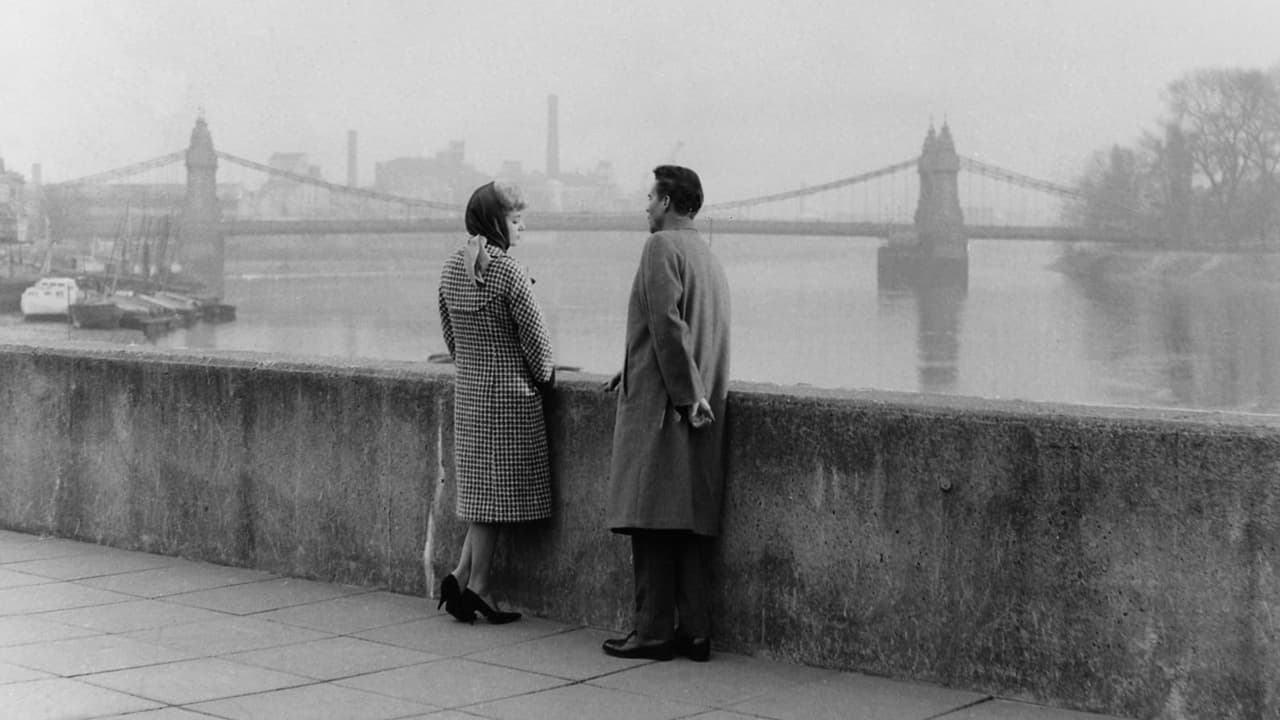



It's a mild crowd pleaser for people who are exhausted by blockbusters.
View MoreThis movie was so-so. It had it's moments, but wasn't the greatest.
View MoreExcellent characters with emotional depth. My wife, daughter and granddaughter all enjoyed it...and me, too! Very good movie! You won't be disappointed.
View MoreBy the time the dramatic fireworks start popping off, each one feels earned.
View MoreIt's weird looking back at the older movies and then slowly getting more modern. It's interesting to see the movies tackle on more mature subjects. This is the earliest movie I have seen that was explicitly about homosexuality. It's kind of cheating for me to give this 10 stars. It's not the best written of its kind, but I simply love it. It might only be because it's great to see an early positive and realistic portrayal of homosexual discrimination. I had no idea that the British actually banned homosexuality, but I don't know how accurate this is. This is a disgusting notion that stops people from being unique and living their lives to the fullest. I don't want to make this review a political rant.The story features a guy who is not only gay, but also happens to have a wife himself. It's revealed that while it was mostly a cover-up, he does sincerely care about his wife, just not in that way. I don't think I have even seen any modern movies that deal with this topic. It truly is interesting to see something most people would just not talk about being discussed in such an old movie. The pacing is great and it never felt too long or short. The acting is quite good and I really feel for all these characters as their lives are being destroyed simply because of whom they love. Historically, I know very little about the history of gay rights. Well, this doesn't deal with American struggles. It's still a wonderful film that everyone should see. God doesn't make junk. ****
View MoreVictim had to tread a fine line between being an earnest issue based movie and a gripping thriller where a barrister's life is spiralling out of control because of his homosexual past.Victim is a snapshot of its time. This is evident in the scenes of the building site where London was going through post war regeneration and scenes of a plush car showroom in the middle of town which is rather a rare sight these days.Victim is also marks a society where homosexuality is illegal. The film-makers took a brave stance in making a sympathetic campaigning stance on the liberalisation of the ban on homosexuality and Dirk Bogarde who stars as Melville Farr, the wealthy upwardly mobile barrister was a someone regarded as a matinée idol and a hit with the ladies. Bogarde was one of the several actors taking a risk in making this film. Given that Bogarde himself was later reputed to be gay only heightened the risk to his professional career.Farr is going far in the world. He is married and taking silk and a place in the judiciary is not far behind. However he had a 'liaison' in his student days which had a tragic outcome. Farr also had a friendship with a construction worker who stole funds because he was being blackmailed for being gay and later dies.This event spurs Farr on to pursue the blackmailers even if this puts his personal and professional life in jeopardy.The film comes close on being preachy on a few occasions but that is expected for a bold, campaigning film of the time but it works well as a decent thriller with a few twists towards the end. It depicts the gay community as a disparate group from wealthy to the working class, old to young. You see a few hanging around a pub, regarded as a gay pub yet the publican has a loathing of homosexuals. In contrast the police inspector has a rather liberal attitude noting that the ban on homosexuality was a blackmailer's charter.Homosexuality was decriminalised in 1967 but that was not the end of the story but a beginning of a chapter which would take another five decades before their would be almost full equality. Until then there was Mrs Thatcher's attack with Section 28 and some police chiefs who thought it was more important for undercover police officers to hang around toilets and entrap gay men than go out catching burglars and drug dealers.
View MoreJust watched the film last night, and then started doing some background research this morning. I was absolutely floored to discover that homosexuals were going to prison in England up to the time a homophobic criminal statute was repealed in 1967.I was especially floored because so many prominent English actors were gay, going back to my knowledge to the 1930s. Noel Coward's name often appears in film biographies as "encouraging" this or that young, handsome actor, back in those good old days. Coward, if anything, flaunted his homosexuality. He was never arrested. Nor was John Giulgud. The U.K. police evidently left famous personalities quite alone, while selectively prosecuting other people, as portrayed in this movie.Mind you, the social safety net of a gay man marrying a woman was commonplace. Many actors, but not all, resorted to this strategy, although to his credit, not Dirk Bogarde.In this particular film, the character of Farr's wife is pivotal. It seems the woman in the life of a gay man receives very little sympathy, so again this film is a milestone in portraying the anguish of the spouse. Many women are, by nature,loving and nurturing and supportive. This is another reason why some of these inappropriate marriages take place. A gay man can draw on some very deep and genuine feminine feelings in this kind of relationship.It is well-known that gay men are extremely close to their mothers. Personally, I don't think these relationships in any way cause homosexuality later in life. On the contrary, a sensitive, intuitive, empathetic boy child may actually elicit the same special emotional response from a mother as he will later elicit from a future wife. The mother does not suffer from excessive love for her son. The wife, however, will pay a steep price.In the film industry, Laurence Olivier's marriage to Vivien Leigh is perhaps the most tragic example of how a woman's love for a brilliant gay man can turn to tragedy. Everyone knows that Vivien Leigh suffered nervous breakdowns. But it is seldom explained that she succumbed to Olivier's charm completely, absolutely adored him...when, by the way, he was married to another woman. The two of them braved scandal when he got a divorce and then married her immediately. But then, Vivien Leigh, the beautiful and idolized star of the entire world, after "Gone With The Wind," endured an 'open' marriage where Olivier would invite young men to dally with him in one of the rooms of their gorgeous manor house, while Leigh was in the other room.Another eminent British star was Michael Redgrave, father of Vanessa and Lynn Redgrave. Like Dirk Bogarde, he had a decades-long relationship with another man, whom he set up, believe it or not, in the house next door to his wife and children. Vanessa Redgrave had a poor relationship with her father, and then married famous director Tony Richardson -- whose homosexuality let to their divorce prior to his death from AIDS.Sylvia Syms gives a strong, many-faceted performance. But it still is only a bare outline of the torment some women live with all their lives.
View MoreBeing the first English language film to use the big bad word "homosexual," Victim was banned at first in the United States (cue the eye roll emoticon). The film intelligently takes on the absurdity of sodomy laws in '60s England and the blackmailing that was the worst of it by that time. Top marks to Dirk Bogarde who wouldn't be dissuaded from his compelling performance as the star of this picture.Not being one to denigrate the passage of meritorious ideas, I appreciate cinema, as I do literature, for its capacity to influence the collective mindset in positive ways. I have my egalitarian sensibilities to credit for the lofty perspective permeating this review.
View More